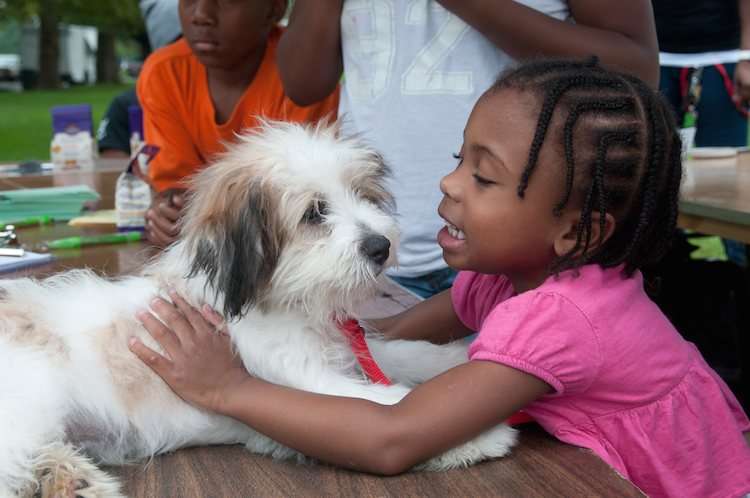Rescue Group Helps Lamb Make Lemonade Out of His "Lemon" Legs
When Lemonade first arrived, he was unable to walk more than a few steps. But this is one determined lamb, and when life handed him lemons...well, you know.

A lot of attention is paid to helping pets get adopted—but one woman saw a need to help furry ones who already had homes.
Amanda Arrington, who was the North Carolina State Director for The Humane Society of the United States a decade ago, started the Pets For Life program to provide care and information for pet owners who are sometimes 20 miles away from a vet.
"A lot of us take for granted that we know what heartworm is, and its prevalent in the south because of mosquitos, but if you've never seen a vet and your parents and neighbors and friends don't take animals to vet, then your just not familiar with it," Arrington told Good News Network.
"There are no pet supply stores, no retailers, people don't have access to what they need."
The issue caught her attention during Hurricane Katrina rescue efforts, when she saw the high rate of pets not spayed or neutered.
"There was no access between Louisiana and Mississippi for people struggling financially to get vet care. There was one spay neuter clinic between the states," she said.
In 2011, she got Pets For Life off the ground by sending teams to literally knock on doors, introduce themselves, and tell people about the services they provide.
"We build a presence in neighborhoods with three days each week of outreach," she said. "People know that if they have a question, we're coming back in two days."
Everything is free, from vet checkups to transportation to the vet and any other services (except very expensive surgeries).
The program was incredibly well-received and, after a year, Amanda realized every town needed something like this—but their volunteers could only handle a few.
As the director of Pets for Life, she decided to reach out to local rescue groups and begin a mentorship program with the help of PetSmart Charities, providing grants and direct training to local groups.
Mentorship programs are operating in 30 cities and 28 states from Florida to New Jersey, they've even on a Native American reservation in Montana.
Working in underserved areas isn't without its challenges, though.
"We deal with everything you can imagine. We console families when they lose someone or help someone who took in a dog because cousin went to jail," Arrington said. "It's all related. You can't just say, ‘I'm here to work on this one issue.'"
Sharonda Byrd knew something was wrong when their two-year-old dog, Treasure, refused to eat and began to lose weight. She wouldn't go near water and developed sores on her skin. They didn't have a car to take the 50-pound-pup to a veterinarian, and taking her on an Atlanta city bus wasn't an option either.
Luckily, they found the organization's walk-in warehouse space nearby, and one of their staffers swung by the house the next morning to drive Treasure to the vet. Treasure made a full recovery from intestinal parasites, thanks to the free treatment Pets for Life provided. She's now back to waking everyone up with a face full of kisses and tail wag to the neck.
Share The Info With Pet Owners… (click below)
Be the first to comment